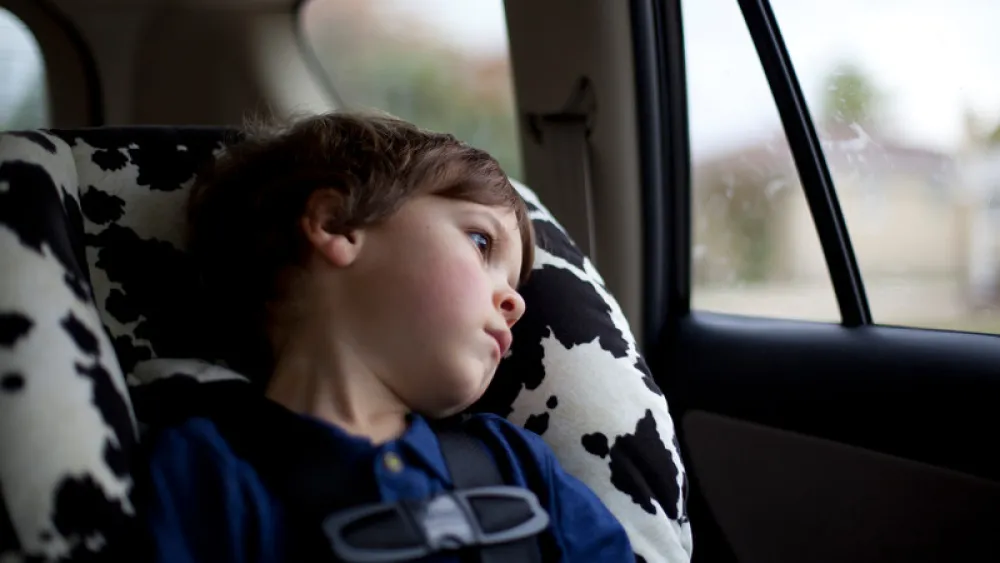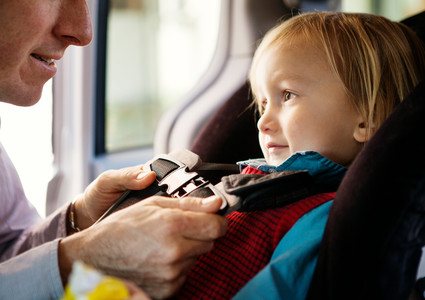




Family Health
How To Prevent and Treat Carsickness in Young Children


The whole family is headed to grandma’s house for the holidays. Yay! But as the car is stuffed with suitcases, boxes and bags, you hear six dreaded words squeak from the back seat:
“Mom, I don’t feel so good.”
Yep, you’ve got a case of carsickness on your hands.
What Causes Carsickness?
 Motion sickness is common in kids and adults. It’s caused by the brain's inability to interpret messages based on what it senses.
Motion sickness is common in kids and adults. It’s caused by the brain's inability to interpret messages based on what it senses.
Children often sit too low to see through the car windows and cannot make out the horizon on the road. This can be confusing and nauseating as the body senses the forward movement, but the brain struggles to process that motion without being able to see it.
Is There any Way To Prevent Carsickness?
Some car sickness can be prevented by using a child safety seat or booster seat. Giving kids a boost will give them enough height to see out the windows.
Here are a few other ideas to try:
- Reduce sensory input. Encourage your children to look at things outside the car rather than inside. Entertain them with activities that prevent them from looking down for extended periods of time (i.e., not staring at a tablet, video screen or book). If your child naps, traveling during nap time might help.
- Watch what they eat. Avoid spicy or greasy foods or eating too much right before getting in the car. If your children need a snack or complain of queasy tummies, provide bland foods such as a few dry crackers and a small drink.
- Open up the windows. Good air ventilation might help prevent car sickness. Avoid using any air fresheners or things that have a strong odor.
What About Carsickness Medication?
There are a few different options available when it comes to over-the-counter medications to prevent car-sickness. But before you try anything, talk with your child’s health care provider about safety.
Dimenhydrinate (Dramamine) is approved for kids 2 and older. The antihistamine diphenhydramine (Benadryl), approved for kids 6 and older, may also prevent symptoms. Both medications work best if taken about an hour before traveling. Read the product label carefully to determine the correct dose and be prepared for possible side effects, such as drowsiness. Nondrowsy antihistamines don't appear to be effective at treating motion sickness.
What Can I Do To Relieve the Symptoms of Carsickness?
If your child tells you she is feeling unwell:
- Try to pull over and stop at the first sign of symptoms and let your child get out and walk around
- Let your child lie on her back for a few minutes with her eyes closed
- Place cool cloth on her forehead to provide some relief
If carsickness is a recurring problem for your child, talk with your child's Methodist Physicians Clinic health care provider about other possible solutions.

